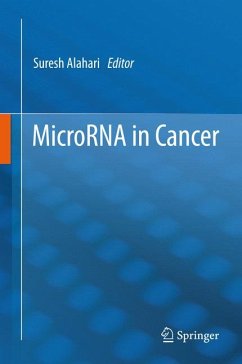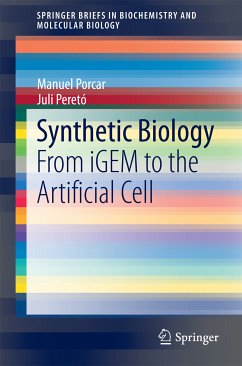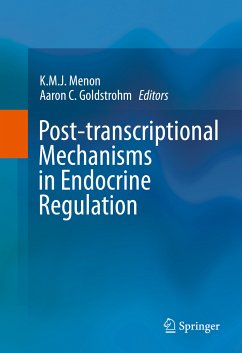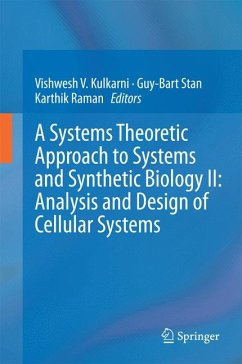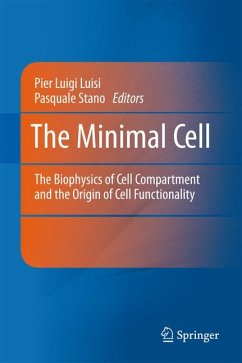
The Minimal Cell (eBook, PDF)
The Biophysics of Cell Compartment and the Origin of Cell Functionality
Redaktion: Luisi, Pier Luigi; Stano, Pasquale
Versandkostenfrei!
Sofort per Download lieferbar
112,95 €
inkl. MwSt.
Weitere Ausgaben:

PAYBACK Punkte
56 °P sammeln!
In the last ten years there has been a considerable increase of interest on the notion of the minimal cell. With this term we usually mean a cell-like structure containing the minimal and sufficient number of components to be defined as alive, or at least capable of displaying some of the fundamental functions of a living cell. In fact, when we look at extant living cells we realize that thousands of molecules are organized spatially and functionally in order to realize what we call cellular life. This fact elicits the question whether such huge complexity is a necessary condition for life, or...
In the last ten years there has been a considerable increase of interest on the notion of the minimal cell. With this term we usually mean a cell-like structure containing the minimal and sufficient number of components to be defined as alive, or at least capable of displaying some of the fundamental functions of a living cell. In fact, when we look at extant living cells we realize that thousands of molecules are organized spatially and functionally in order to realize what we call cellular life. This fact elicits the question whether such huge complexity is a necessary condition for life, or a simpler molecular system can also be defined as alive. Obviously, the concept of minimal cell encompasses entire families of cells, from totally synthetic cells, to semi-synthetic ones, to primitive cell models, to simple biomimetic cellular systems. Typically, in the experimental approach to the construction of minimal the main ingredient is the compartment. Lipid vesicles (liposomes) are used to host simple and complex molecular transformations, from single or multiple enzymic reactions, to polymerase chain reactions, to gene expression. Today this research is seen as part of the broader scenario of synthetic biology but it is rooted in origins of life studies, because the construction of a minimal cell might provide biophysical insights into the origins of primitive cells, and the emergence of life on earth. The volume provides an overview of physical, biochemical and functional studies on minimal cells, with emphasis to experimental approaches. 15 International experts report on their innovative contributions to the construction of minimal cells.
Dieser Download kann aus rechtlichen Gründen nur mit Rechnungsadresse in A, B, BG, CY, CZ, D, DK, EW, E, FIN, F, GR, HR, H, IRL, I, LT, L, LR, M, NL, PL, P, R, S, SLO, SK ausgeliefert werden.






